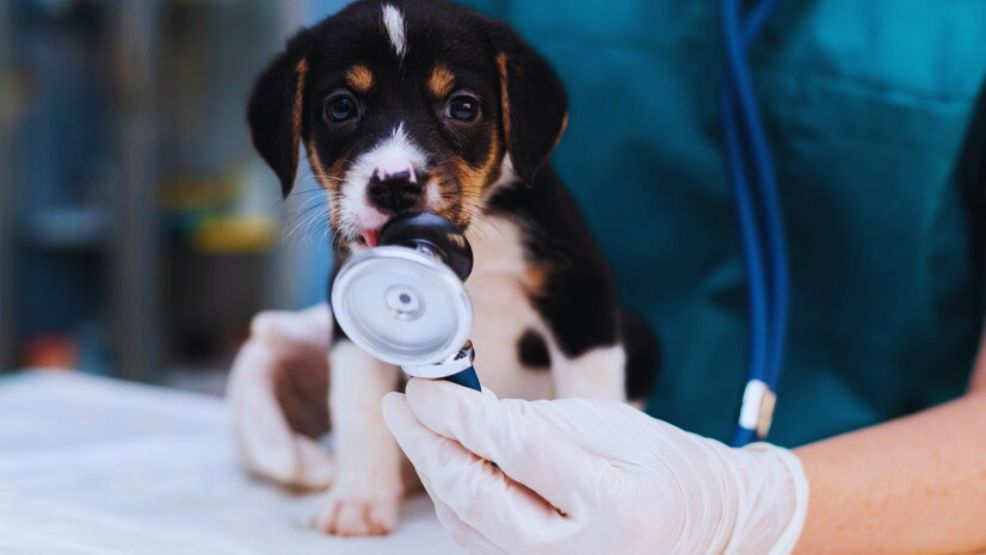How to (Financially) Handle a Pet Emergency


Bringing a dog, cat, or any other pet into your home can bring much happiness into your life, but it can also lead to financial stress. One of the main responsibilities of being a responsible pet owner is planning for the unexpected.
While many don’t like to think about the worst-case scenarios, pet emergencies are a real possibility that every pet owner needs to be prepared for. The simple truth is that nobody has limitless finances, and all available resources are used to pay other vital expenses.
Hopefully, you’ll never have to make an emergency trip to the veterinarian with your furry companion. However, by ensuring you’re financially prepared for such situations, you can have more peace of mind.
In this article, we’ll examine different financial options and how they can help you handle a pet emergency. By ensuring you know your options for covering urgent pet care, we hope to help ease your anxiety as a pet owner. Let’s begin!
How To Financially Handle A Pet-related Medical Emergency

Here are some suggestions on what you can do in case of a pet-related medical emergency:
1) Consider a Short-Term Loan
Just like humans during pet emergencies, time is of the essence. In situations like these, when you need quick money, consider opting for short-term loans or payday loans. These are short-term financing options that provide quick access to cash during difficult times.
Unlike long-term loans, short-term loans typically have a fast approval process and allow you to swiftly access the funds you need. However, one major disadvantage is that these loans often have higher interest rates and must be repaid quickly, typically within a few months.
However, when taking any loan, you need to review the terms carefully and choose a loan that fits your budget to avoid any financial strain. Additionally, some lenders specialize in pet-related expenses and could offer more favorable loan repayment conditions.
While short-term loans have drawbacks, they provide much-needed financial relief and serve as a lifeline during a pet emergency.
2) Budget for Routine Veterinary Care
However much you try to avoid it, pet emergencies do happen. You can’t stop it from happening, but you can reduce the likelihood of such situations by taking care of your pet regularly. This involves staying on top of all their routine check-ups, vaccinations, and shots.
But this, too, can be costly. This is why you need to set aside some amount of money for it from the very first moment you bring your pet home. Remember, a large part of being financially prepared for owning a pet involves thinking about and budgeting for their routine care.
Budgeting for routine veterinary care is an essential part of managing your pet’s overall health and can help you avoid pet emergencies. From regular check-ups and timely vaccinations to necessary grooming items, such as horse clippers or trimmers, you must ensure your pet receives appropriate care.
Similarly to your regular monthly expenses, your routine pet care shouldn’t be covered by your emergency fund. By creating a dedicated pet care budget, you can systematically plan for these costs instead of scrambling for ways to cover them during an emergency.
3) Build a Dedicated Emergency Fund
Pet emergencies may be unpredictable, but there’s a good chance you may face one at some point in your life. Building a dedicated emergency fund for your pet is an essential step to prepare for such unexpected situations.
Begin by setting aside a small, manageable amount of money each month so the process doesn’t feel too overwhelming. While you may only be able to save a little at first, it will add up over time and help you create a financial cushion you can fall back on. Consider keeping these funds in a separate savings account to avoid mixing them up with your regular expenses.
Always review and adjust your contributions to your emergency fund based on your current financial situation and any changes in your pet’s needs. Setting up an emergency fund is a great way to reduce anxiety during any pet emergency and empowers you with the financial support you need.
4) Ensure Your Pet Is Properly Insured
Pet insurance can be a lifesaver during emergencies. It helps cover the cost of veterinary treatment for unexpected illnesses or injuries. Many policies offer different levels of coverage, and the cost of pet insurance depends on various factors, such as the breed, age, and type of policy you select.
For this reason, you need to ensure you understand exactly what each policy covers to get maximum value out of your insurance. Moreover, there are some factors that you need to keep in mind while choosing pet insurance.
Factors to consider while choosing pet insurance
When choosing pet insurance, there are several key factors to consider to ensure you get the best coverage for your furry friend:
- Coverage Options: Look for comprehensive plans that cover accidents, illnesses, and wellness care. Some policies also offer additional coverage for dental care, alternative therapies, and prescription medications.
- Cost: Compare premiums, deductibles, and reimbursement rates. It’s important to find a balance between affordable premiums and sufficient coverage.
- Exclusions and Limitations: Check for any exclusions, such as pre-existing conditions, breed-specific conditions, or age limits. Understanding these can help you avoid unexpected out-of-pocket expenses.
- Reputation and Reviews: Research the insurer’s reputation and read customer reviews. This can give you insight into their customer service, claim processing times, and overall reliability.
- Annual Limits and Caps: Know any annual or lifetime payout limits. Some policies may have caps on the amount they will pay per incident or year.
- Waiting Periods: Understand the waiting periods for coverage to begin. This can vary depending on the type of coverage (e.g., accidents vs. illnesses).
- Flexibility and Customization: Look for policies that allow you to customize your coverage based on your pet’s specific needs, such as breed-specific conditions or age-related issues.
Ideally, we hope you’ll never have to use your pet insurance. But having it can provide you with much-needed peace of mind. By making sure your pet is properly insured, you won’t need to make any tough financial decisions if an unexpected illness or accident were to occur.
5) Negotiate Payment Terms With Your Vet
If you face a large veterinarian bill, it’s best to be up-front with your vet about what you think you can afford. Your vet should know your financial situation early on. They can then plan what steps to take when you bring your pet to them.
Your vet can advise you on various treatment choices that prioritize your pet’s welfare. At the same, they will also be realistic about what you can afford. Many vets are understanding. So, they may also offer flexible payment plans to help you manage the treatment costs over time.
Every veterinarian’s main priority is your pet’s health. As a result, they may likely be willing to work with you to ensure your pet receives the care it needs without adding extra financial stress. This simple, open, and honest conversation can make a big difference during challenging times.
6) Look for Charitable Organisations or Pet Assistance Programmes
During any type of pet emergency, charitable organizations and assistance programs can provide a lot of support. Research local and national organizations that offer financial assistance or low-cost veterinary care.
Many of these programs are designed to help pet owners who are struggling with unexpected medical expenses. With the help of private funding and donations, these organizations can provide pet care services at a lower cost than a regular vet.
Reach out to these organizations and programs as soon as possible to learn more about their application process. Also, see if you meet their eligibility requirements. With the support of these resources, you can reduce some financial pressure while keeping your pet healthy and happy.
To Wrap Up
Just remember, handling a pet emergency doesn’t have to be a nightmare. Stay calm, and find out what your options are. Then, with some planning, saving, and budgeting, you can ensure your pet gets the best care they deserve.
Our pets are our family, and they rely on us for everything. So, being prepared for any unexpected pet medical emergencies is just another form of safeguarding their well-being. So, take a deep breath, make a plan, and give your pet a little extra cuddle – you’ve got this!









Leave A Comment